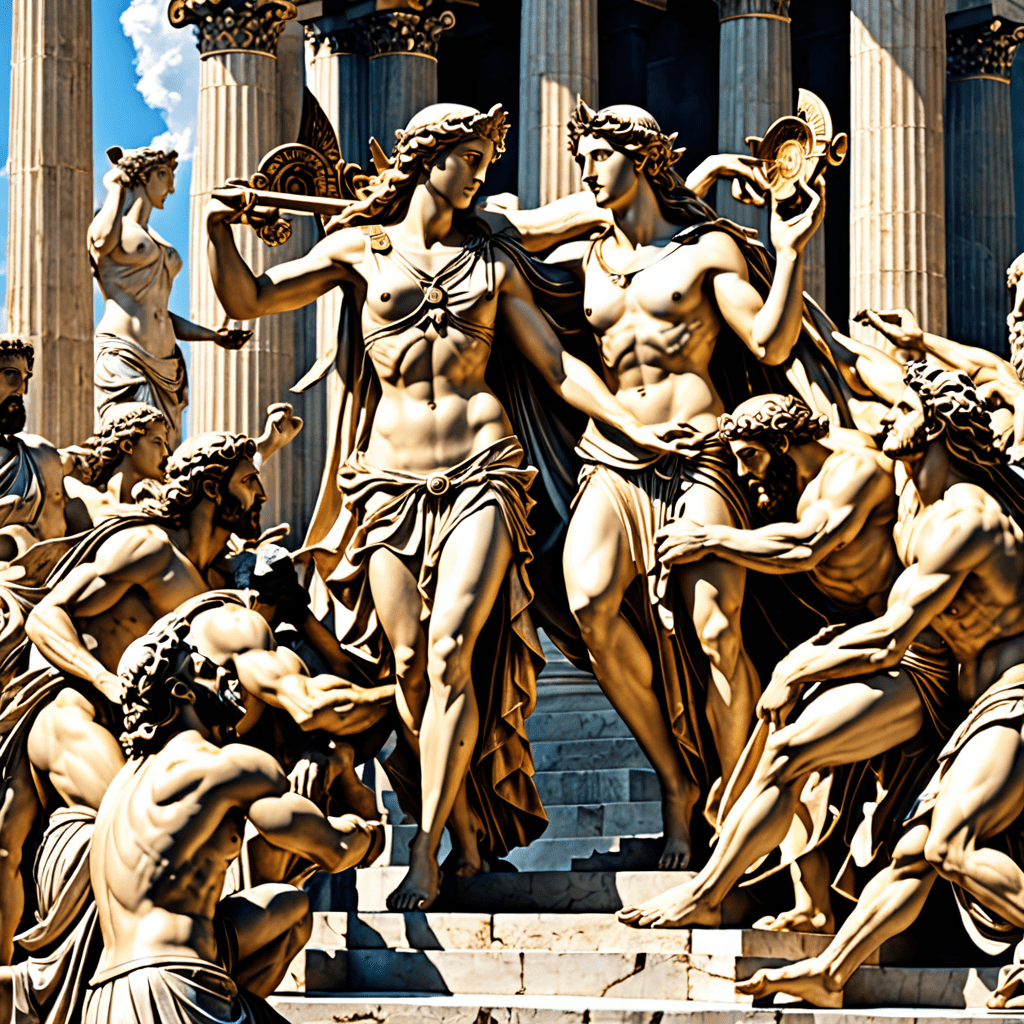The Essence of Beauty in Greek Mythology
Beauty holds immense significance in Greek mythology, often serving as a central theme that resonates throughout various tales of gods, goddesses, and mortals. The Ancient Greeks attributed great importance to beauty, both physical and spiritual, and this belief is encapsulated in the way beauty is portrayed in their myths.
The Ideal of Divine Beauty
Greek mythology presents a standard of beauty that is epitomized by the gods and goddesses themselves. Characters like Aphrodite, the goddess of love and beauty, and Apollo, the god of light and the arts, exemplify perfection in physical appearance and grace. It is said that their beauty transcends mortal understanding, captivating all who behold them.
The Flawed Beauty of Mortals
Despite the immense focus on divine beauty, Greek myths also explore the concept of flawed beauty in mortals. Heroes such as Helen of Troy, whose incomparable beauty sparked the Trojan War, and Narcissus, who was consumed by his own beauty, highlight the complexities of beauty and the consequences that may arise from it.
Beauty as a Source of Power and Misfortune
In Greek mythology, beauty is not merely an aesthetic quality but a powerful force that can shape destinies and drive narratives. Medusa’s beauty led to her transformation into a monster, while the beauty of the Sirens lured sailors to their doom. These stories underscore the dual nature of beauty as both a gift and a burden in the mythical world.
Conclusion
The representation of beauty in Greek mythology is multifaceted, exploring the dichotomy between divine perfection and mortal imperfection. Through its intricate portrayals of beauty, Greek mythology delves into deeper themes of desire, jealousy, and the transient nature of physical appearance, offering a timeless reflection on the essence of beauty in the human experience.
FAQ – The Representation of Beauty in Greek Mythology
What role did beauty play in Greek mythology?
Beauty was a central theme in Greek mythology, with gods, goddesses, and heroes often depicted as idealized figures of physical perfection.
Who were some of the most beautiful figures in Greek mythology?
Aphrodite, the goddess of love and beauty, was considered the epitome of beauty in Greek mythology. Other notable figures include Helen of Troy, known for her unrivaled beauty that led to the Trojan War.
How was beauty portrayed in Greek art and literature?
Greek artists and writers often portrayed beauty as a combination of physical attractiveness and inner qualities like wisdom and virtue. The concept of beauty was celebrated through sculptures, paintings, and epic poems.
What significance did beauty hold in ancient Greek society?
In ancient Greece, beauty was highly valued and seen as a reflection of one’s moral character and divine favor. Physical beauty was believed to bring good fortune and admiration.
How did the representation of beauty in Greek mythology influence modern perceptions of beauty?
The idealized depictions of beauty in Greek mythology continue to influence modern standards of beauty, shaping perceptions of physical attractiveness and inspiring artistic expressions across various mediums.




